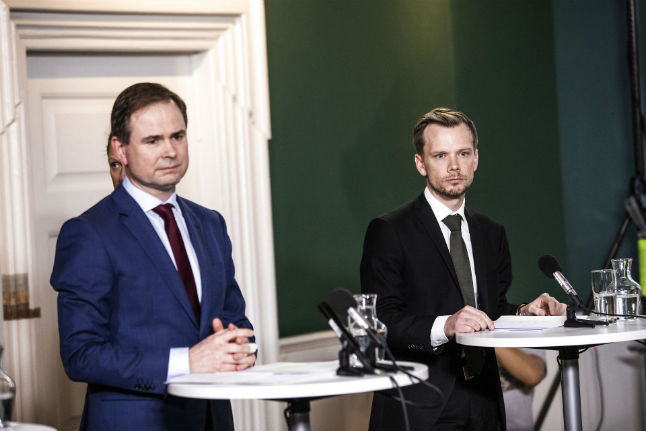
The raft of four measures also included a guarantee scheme to back some 7.5bn Danish kroner in loans to help businesses survive drops in revenues due the crisis, according to a press release issued with the announcement.
“The government will do everything in our power to ensure that the health crisis does not develop into a larger economic crisis than is necessary,” Finance Minister Nicolai Wammen said at a press conference on Thursday.
In an interview with state broadcaster DR, he said that he hoped the measures would mean fewer people lost their jobs.
“This is an important contribution to propping up Danish workplaces so that fewer people end up losing their jobs,” he said.
The good economic situation of the past few years, he added, had allowed the government to build up a financial surplus, which would hopefully give it enough firepower to prevent a serious economic crisis.
“We can now afford to implement these relief packages and we will do what it takes,” he told DR. “We don’t know how much more to put on the table, but we are prepared to do whatever is needed.”
Wammen said the government was currently in negotiations with business groups and with the unions to see if further regulatory interventions might be necessary.
Here are the four measures announced on Thursday:
- The release of the so-called ‘countercyclical capital buffer’ banks have been required to keep on their books since the 2007 financial crisis. This will provide them an extra 200bn Danish kroner in liquidity, which they can either use to lend to businesses or to withstand losses on existing loans.
- Two new loan guarantee schemes, one for large companies and one for small and medium enterprises (SMEs). The government will guarantee 70 percent of the value of any new bank loans given to SMEs who have seen operating profits fall by more than 50 percent. This could back up to 4.8bn kroner in new loans. It will guarantee 70 percent of the value of new loans to large companies who can demonstrate a fall in turnover over more than 50 percent. This could back 2.7bn kroner in new loans.
- Employers from now on be completely reimbursed by the government from the first day that an employee becomes ill or enters quarantine due to coronavirus, rather than having to themselves absorb the bill for the few days.
- Employment legislation is being relaxed to allow companies to reduce employees hours temporarily, with the employees incomes then supplemented by unemployment benefit. The Ministry of Employment hopes that this will prevent employees from being laid off.
Here is a fact sheet from the Ministry of Industry, Business and Financial Affairs (Here’s a Google Translation).

